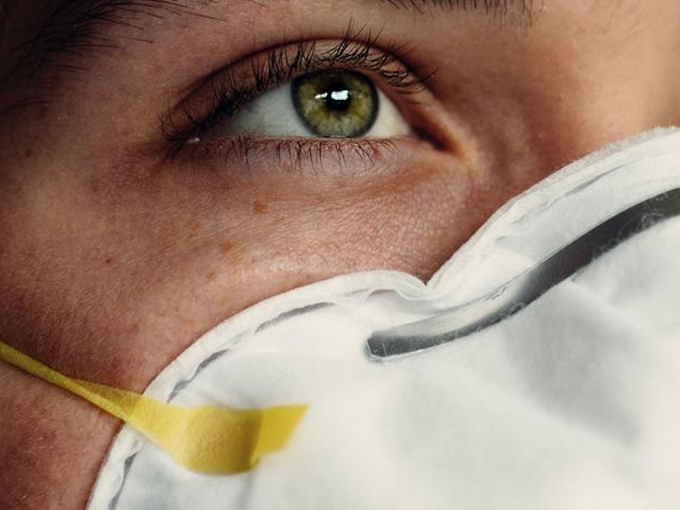
By Rowan Quinn, RNZ News health correspondent
Wearing glasses or getting a runny nose is enough to qualify for a mask exemption under current New Zealand’s Ministry of Health criteria — and a doctor says its time for tougher rules.
Hearing aids, hayfever or a tendency to get dry eyes are also reasons to request the legally binding card that says you do not need to wear a mask when normally required to under covid-19 rules.
Some doctors say the reasons are far too loose, with people simply needing to tick just one of the symptoms on the ministry’s website list to get an exemption card sent to them.
- LISTEN TO RNZ MORNING REPORT: ‘I want masks to be legitimate and used and trusted’ — Medicine specialist Dr Gary Payinda
- ‘It’s very clear that masks work and it’s very clear you can get sufficient fresh air through them’ – Covid-19 modeller Dr Dion O’Neale
- Facemask exemption criteria
Northland medicine specialist Dr Gary Payinda said the card was a great idea for people who had legitimate reasons for not wearing a mask.
But the current list of criteria was so wide it was absurd — almost everyone in the country would qualify, he said.
“If we’ve made it so easy that literally anyone can click a box and say I have a ‘condition’ … we really have to ask is it still a public health measure.”
With so many other measures relaxed, masks were one of the last lines of defence against the virus, and so everyone who could wear one, should be, he said.
Compromising public health measures
He told RNZ Morning Report that compromising one of the most effective public health measures was not doing the community a good service.
“We want the right people to be protected by this law and we want masks to still be a meaningful way of reducing the burden of covid in the community.”
“If we make an exemption process so easy to get that it’s meaningless, we’re shooting ourselves in the foot.
“I want masks to be legitimate and used and trusted, and that won’t be the case if anyone can literally tick the box and say, ‘face coverings give me a runny nose’ and that’s enough to get a mask exemption.”
The criteria have come under scrutiny as the government changes the process for getting a mask exemption card.
Until now, cards were issued by the Disabled Persons Assembly but the new ones are issued by the Ministry of Health and have legal standing.
They are intended for people to show to shops or other businesses so they do not have to explain potentially sensitive reasons why they may have an exemption.
The ministry said it had tried to make the process for applying for a card uncomplicated to avoid marginalising vulnerable communities.
Small minority misuses system
The vast majority of New Zealanders had shown they wanted to do the right thing to protect their communities and only a small minority had tried to misuse the system, it said.
A spokesperson indicated the criteria may be changed as the new card comes into effect but was not able to respond with more details before RNZ’s deadline.
Existing cards, issued with the current criteria, can still be used when the new ones come into effect.
The Disabled Persons Assembly welcomed the new card system, telling Midday Report the old system had been causing distress for some in the disabled community.
Prudence Walker said people had not been believed, refused service or had the police called on them.
She hoped the new card would improve things.
Dr Payinda said there were many good reasons — because of both physical and mental health — that people could not wear masks and he supported them doing that but the current list was open to abuse.
Current criteria wideranging
The current criteria for requesting a card according to the Ministry of Health website include having the following conditions if they make wearing a mask difficult: asthma; sensitive skin or a skin condition like eczema; wearing hearing aids; getting migraines, having glasses, dry eyes or contact lenses; hay fever; difficulty breathing; dizziness, headaches, nausea or tiredness; a runny nose from wearing a face covering; a physical or mental illness, condition or disability.
Needing to communicate with someone who is deaf or hard of hearing is also one of the criteria.
Covid-19 modeller Dr Dion O’Neale said attempting to force those who were adamantly opposed to masks to wear one wouldn’t be effective.
“If they want to be difficult about it they’ll manage to tick the box and say I’m wearing it, and wear it badly.”
Most people did want to protect themselves and those around them, so it was important to keep the messaging clear on how masks work and when to wear them, he told Morning Report.
“It’s physics. The mask, if it’s well fitted, it’s going to be filtering out small particles. If those particles are viruses you’re not going to be infected by them, or if you’re breathing in a much smaller number of those particles you’re going to have a much lower exposure dose, so your infection risk is much lower.”
This article is republished under a community partnership agreement with RNZ.













































